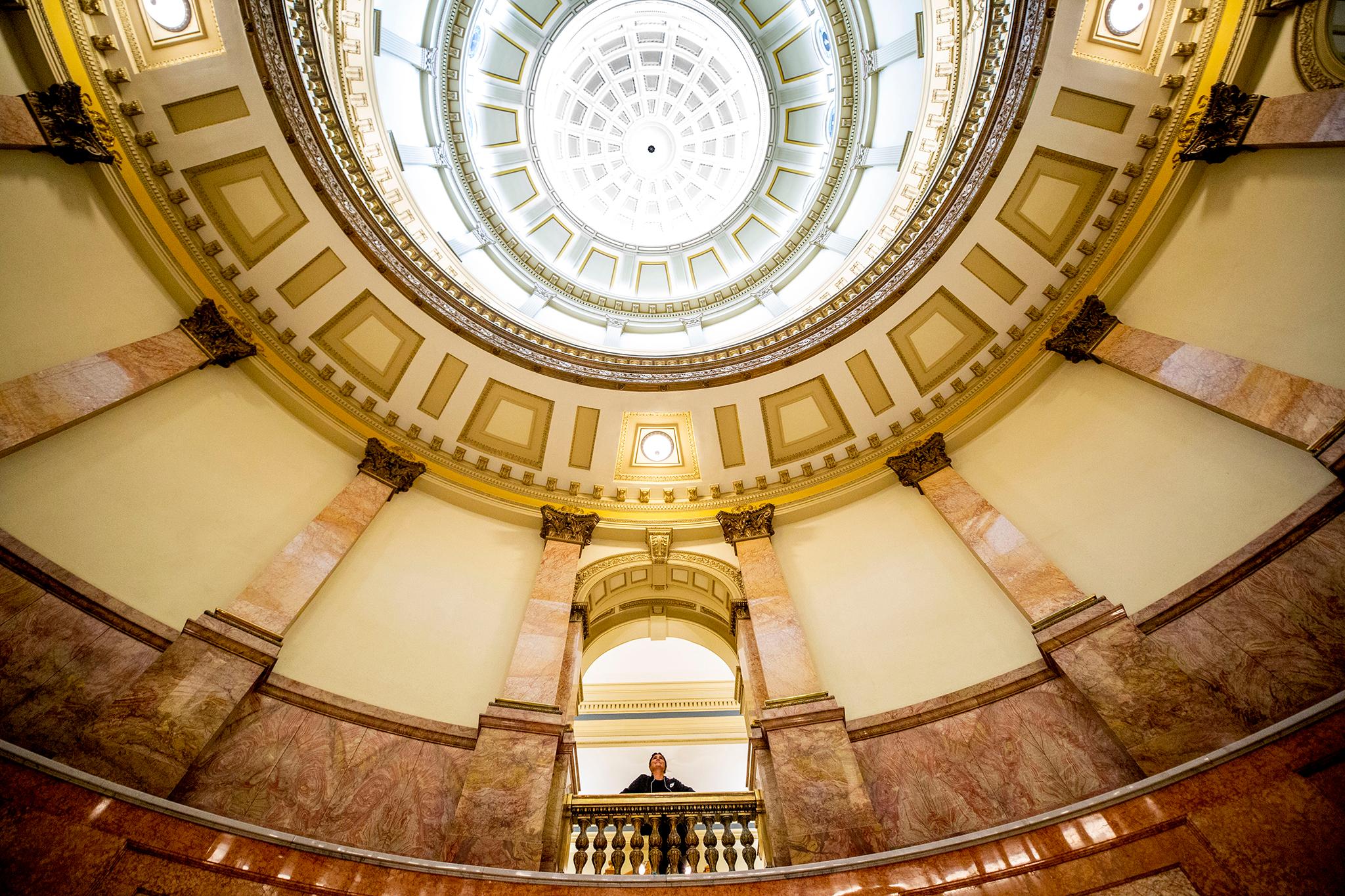
Colorado’s sweeping land-use bill was gutted once, and then gutted again. Now, House Democrats will attempt reconstructive surgery to restore the bill’s most ambitious — and controversial — components, including density mandates on local governments.
“We have some concerns that the version that passed the Senate lacks a lot of the solutions that we sought when we introduced the bill in the first place,” said Rep. Steven Woodrow. “And so we're looking to put a good amount of that back in.”
But even if supporters succeed, they could be setting up a showdown with the state Senate in the waning days of the session. Lawmakers must adjourn their work by midnight Monday, May 8.
The bill originally proposed to override development rules in dozens of Colorado cities. It would have forced local governments to allow greater residential density in residential neighborhoods and elsewhere.
But it faced tough resistance in the state Senate, where suburban-district Democrats on key committees forced the removal of density requirements. The Senate instead passed a stripped-down version of the bill that focused mostly on planning. Now, the bill’s House sponsors say that won’t do.
State Reps. Iman Joden and Woodrow, both Democrats, said they would move this week to reintroduce some of the density requirements.
“We are going to pass a bill that is reflective of the needs in Colorado, while also honoring the eight months of stakeholdering work that we've done and continue to do,” Jodeh said.
Jodeh and Woodrow plan to work with other House members to return the following concepts to the bill:
- Requiring certain cities to allow accessory dwelling units in some areas. This change would apply to Tier 1 and Tier 2 cities, as defined in the bill, which includes most cities except ski towns and small rural municipalities.
- Requiring certain cities to allow greater density in a portion of areas within a half-mile of rail stations and a quarter-mile of high-frequency transit routes. This change would apply to Tier 1 urban municipalities.
The pair said that decisions about local housing can’t just be left to local governments. The current practice of allowing only single-family homes in most neighborhoods is inequitable and unsustainable, they said.
“We are eliminating this modern-day redlining that we're seeing,” Jodeh said, referring to historic practices that excluded people of color from many residential areas.
But Woodrow and Jodeh would not attempt to resurrect the “middle housing” component of the bill, which would have allowed condos and quadplexes “by right” in some residential neighborhoods, they said.
“Personally, I was really bummed that we are taking out middle housing. I think for me it was a really big component of the bill. That said, I think this may not be the year for it. And strategically, we are honoring the path to a successful bill,” Jodeh said.
Jodeh and Woodrow said they are working with members of the House Transportation, Housing & Local Government Committee on the potential changes ahead of a hearing on Tuesday. They also are inviting ideas from the committee members.
Making these changes will likely add a few more loops-de-loop to this bill’s rollercoaster ride through the legislature. Any amendments that get through the House would still have to be reconciled with the Senate. That would likely be done through a conference committee, where a handful of lawmakers come together to hash out the differences between each chamber’s version of the bill.
Ultimately, the final version for the bill must get the majority approvals of both the full Senate and the full House.
The bill, which is Gov. Jared Polis’ signature legislation for the session, has faced stiff opposition from local governments, including the mayors of 38 out of 39 metro Denver cities. Local leaders have objected to the idea of the state taking authority over development decisions within their borders. They are also hearing harsh blowback from current residents who fear that a condo complex or other denser housing could be built among single-family homes.









